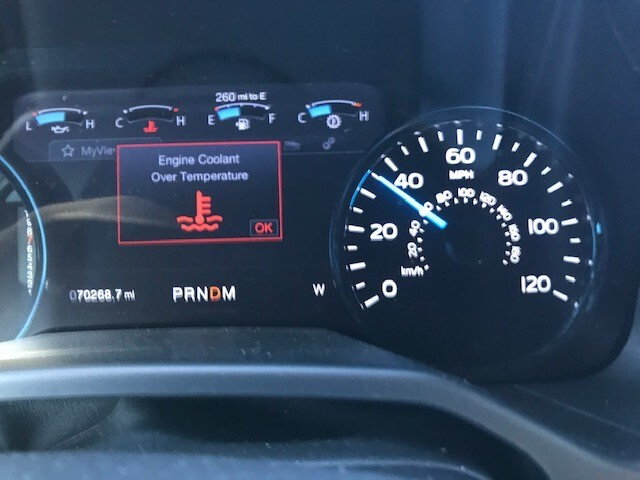If engine coolant over temperature, immediately stop the vehicle and turn off the engine. Overheating can cause serious damage to the engine and other components.
It is important to take prompt action to prevent further issues and potentially costly repairs. Monitoring the temperature gauge and checking for any leaks or smoke can help identify the cause of the overheating. If necessary, add coolant or antifreeze to the radiator or reservoir.
However, it is recommended to let the engine cool down before opening the radiator cap. If the problem persists, it is best to seek professional assistance from a mechanic or automotive service provider to diagnose and address the issue accurately. Taking these steps can help prevent further damage and ensure the proper functioning of the engine.
What Causes Engine Coolant Over Temperature?
Engine coolant over temperature can be caused by a variety of factors. The most common reasons include:
1. Overheating due to low coolant level: If the coolant level in your engine is too low, it can lead to overheating. This can be caused by a leak in the cooling system or improper maintenance.
2. Malfunctioning thermostat: The thermostat is responsible for regulating the flow of coolant through the engine. If it is malfunctioning or stuck closed, it can cause the coolant to overheat.
3. Blocked radiator or coolant passages: If the radiator or coolant passages become blocked or clogged, it can impede the flow of coolant and lead to overheating.
It is important to address engine coolant over temperature promptly to avoid further damage to the engine. If you notice your engine temperature rising, it is recommended to stop driving and seek professional assistance to diagnose and address the problem.

Credit: m.youtube.com
Signs Of Engine Coolant Over Temperature
Engine coolant over temperature can be a serious issue that needs immediate attention. There are several signs that indicate your engine coolant may be overheating. Firstly, a warning light on your dashboard will illuminate, indicating an issue with the coolant temperature. Keep an eye out for this warning light, as it may prevent potential damage to your engine. Secondly, if you notice steam or smoke coming from your engine, it is a clear indication that the coolant is overheating. This should not be ignored and you should pull over and turn off your engine immediately. Lastly, if your engine temperature gauge is in the red zone, it means that the temperature of the coolant is exceeding its normal range. It is crucial to take action as soon as possible to prevent any further damage to your engine.
How To Address Engine Coolant Over Temperature
If you find your engine coolant over temperature, there are several steps you can take to address the issue. Firstly, pull over to a safe location and turn off the engine. Allow it to cool down before taking any further action. Check the coolant level and add more if necessary. Inspect the cooling system for any leaks, as they can cause coolant loss and overheating. It’s also important to check the thermostat for proper functioning, as a faulty thermostat can lead to overheating. Lastly, clean or replace a blocked radiator or coolant passages, as this can obstruct the flow of coolant and contribute to overheating. By following these steps, you can effectively address engine coolant over temperature.
Tips To Prevent Engine Coolant Over Temperature
Regularly check coolant levels to ensure they are within the recommended range. Low coolant levels can lead to overheating, so it’s important to top up when necessary.
Maintain proper coolant mixture ratio. Using the correct ratio of coolant to water will help prevent overheating. Refer to your vehicle’s manual for the recommended coolant mixture.
Check and replace coolant hoses as needed. Over time, coolant hoses can become worn or develop leaks, leading to coolant loss and overheating. Inspect hoses regularly and replace any that show signs of damage.
Flush the cooling system periodically to remove any built-up debris or contaminants. Flushing the system helps maintain efficient coolant flow and prevents blockages that can contribute to overheating.
Keep the radiator and grille clean from debris. Blocked airflow can impede the cooling process, so regularly clean the radiator and grille to ensure optimal airflow and prevent overheating.
Conclusion
Dealing with engine coolant over temperature is crucial for maintaining the health of your vehicle. By following the steps outlined in this blog post, you can effectively address this issue and prevent potential damage to your engine. Regular maintenance, keeping an eye on coolant levels, and seeking professional help when needed are all key in ensuring optimal performance and longevity of your vehicle.
Remember, taking proactive measures not only saves you time and money but also enhances safety on the road. Keep your engine cool and drive worry-free!

